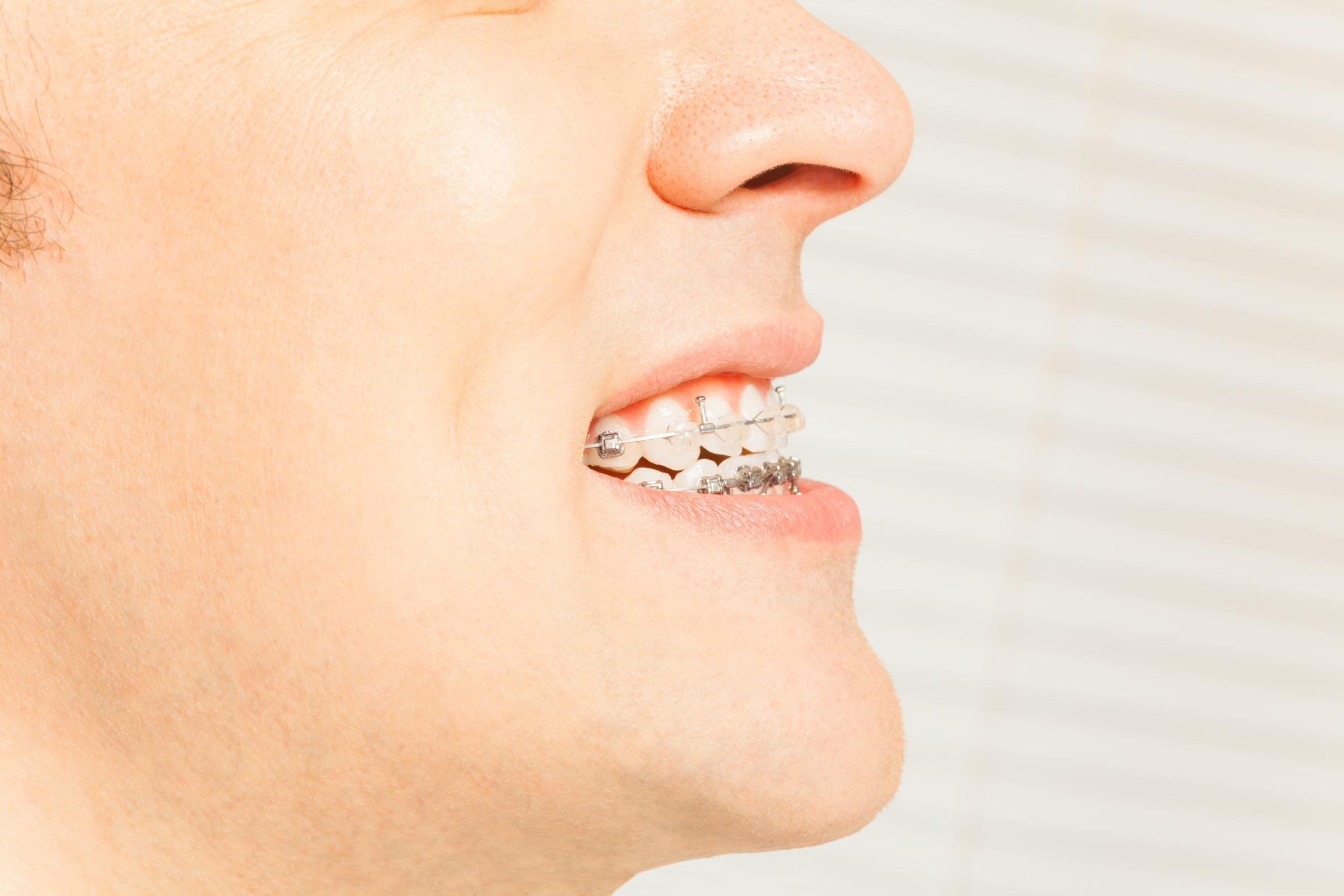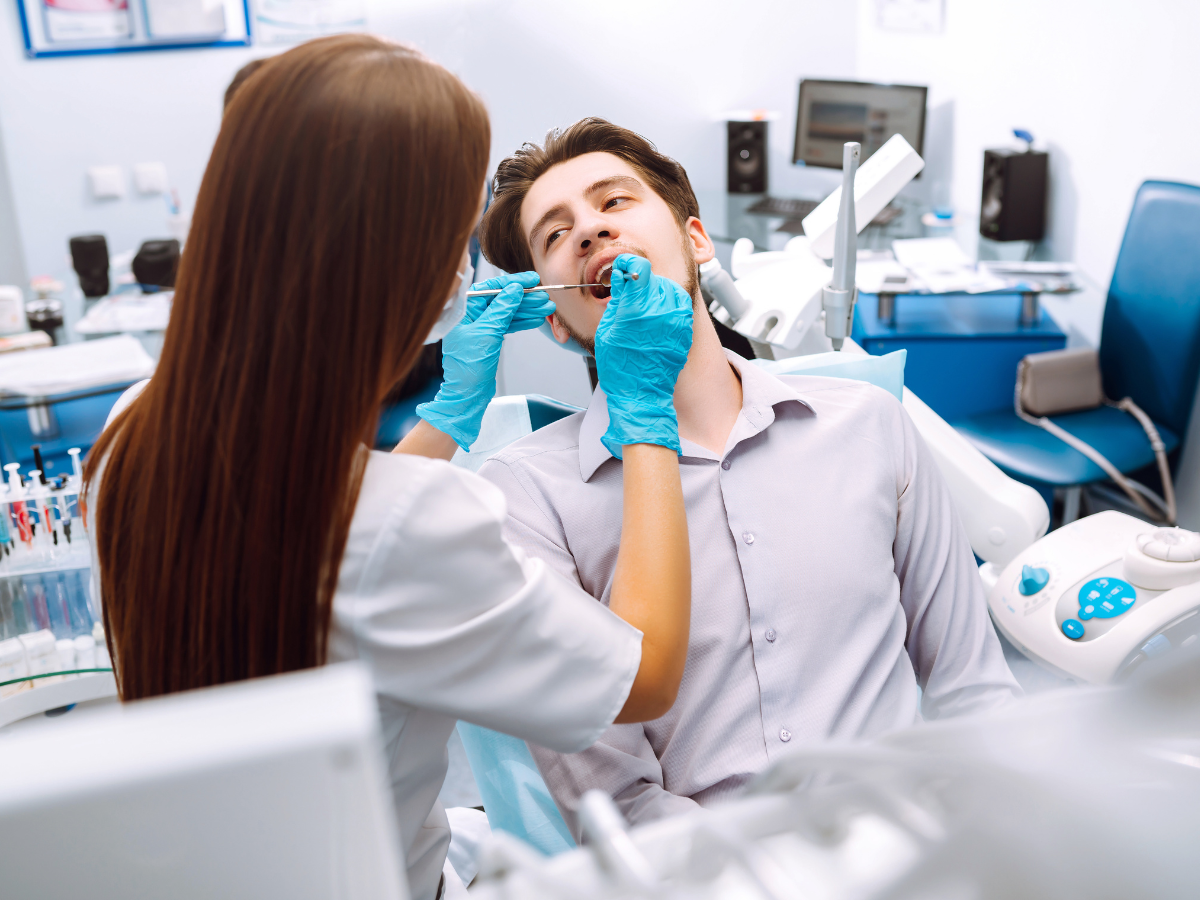What is a deep bite in Orthodontics?
A deep bite happens when your upper front teeth overlap your lower front teeth way too much, even when you clench your back teeth together. This is also sometimes called an overbite or closed bite.
While some people might not mind the look of a deep bite, it can often be a sign of other dental issues that need attention.
What Symptoms a deep bite?
There are several reasons why someone might Symptoms a deep bite:
- Jaw size difference: This is the most common cause. If your lower jaw is smaller than your upper jaw, your upper teeth will overlap your lower teeth significantly.
- Missing teeth: If you’re missing a lower tooth, the remaining teeth can shift and erupt further, creating a similar effect to a small jaw.
- Habitual clenching or grinding: People who grind or clench their teeth excessively can develop stronger bite muscles. Over time, these strong muscles can pull the upper jaw down further, deepening the bite.
In addition to these, other factors like genetics and childhood habits (thumb sucking, prolonged pacifier use) can also play a role in deep bite development. If you suspect you have a deep bite, it’s important to see a dentist or orthodontist for diagnosis and treatment options.
Does a Deep Bite Need to Be Corrected?
Beyond aesthetics, there are several reasons to address a deep bite:
- Faster tooth wear: Over-erupted lower front teeth make contact with more surface area of the upper teeth, leading to quicker wear and tear. This can expose sensitive dentin and increase risk of cavities.
- Painful sores: Deep bites can cause you to bite into the roof of your mouth, leading to uncomfortable ulcers that interfere with eating.
- Restorative challenges: Extensive tooth wear due to a deep bite makes restoration (fillings, crowns) difficult. Correcting the bite creates space for proper restoration.
- Improved alignment: Deep bites often accompany crowded or crooked teeth. Fixing the deep bite allows room for straightening these teeth with braces or aligners.
In addition to these points, a deep bite can also contribute to jaw pain and headaches in some individuals. Consulting a dentist or orthodontist can help determine if correcting your deep bite is necessary for both functional and cosmetic reasons.
Solutions a Deep Bite
An orthodontist can address a deep bite by strategically moving your teeth. There are two main approaches:
- Adjusting the front teeth: The orthodontist might move the upper and lower front teeth upwards into the jawbone. This reduces the overlap and creates a more balanced bite.
- Elongating the back teeth: Alternatively, the orthodontist could focus on elongating your side and back teeth. This creates more space vertically, effectively opening up the bite and achieving a similar outcome to moving the front teeth.
Choosing the right approach
An experienced orthodontist will assess your individual situation to determine the most suitable method or a combination of both. Factors like the severity of the deep bite and your jawbone structure will influence this decision.
Treatment options
The good news is that deep bites can be corrected using braces or clear aligners. Braces are the traditional method and offer precise control over tooth movement. Clear aligners, on the other hand, are virtually invisible and may be preferred for aesthetic reasons. Your orthodontist will discuss the pros and cons of each option to help you pick the best fit for your needs and preferences.
Additional considerations
While treatment can significantly improve your bite and smile, it’s important to remember that orthodontics typically takes time. The exact duration depends on the complexity of your case, but most deep bite corrections require wearing braces or aligners for at least one to two years.
If you’re considering deep bite treatment, consulting with a qualified orthodontist is the first step. They can provide a personalized assessment, discuss the treatment options, and answer any questions you may have.
What is a deep bite in Orthodontics?- FAQ
What is a deep bite?
In orthodontics, a deep bite refers to a misalignment where the upper front teeth significantly overlap the lower front teeth when your jaw is closed. This overlap can range from mild to severe.
What causes a deep bite?
There are several factors that can contribute to a deep bite, including:
- Small lower jaw: If your lower jaw is underdeveloped compared to your upper jaw, it can cause the upper teeth to overlap the lower ones excessively.
- Habitual behaviors: Thumb sucking or tongue thrusting during childhood can put pressure on the teeth and contribute to a deep bite.
- Missing teeth: Missing teeth in the back of the mouth can disrupt the normal bite pattern and lead to a deep bite.
- Genetics: In some cases, deep bite can be hereditary.
What are the problems associated with a deep bite?
While a deep bite may not always cause immediate problems, it can lead to several issues over time, such as:
- Excessive wear and tear on teeth: The abnormal bite can cause the lower teeth to hit the roof of the mouth or the gum tissue behind the upper front teeth, leading to chipping, erosion, or gum recession.
- Difficulty chewing: A deep bite can make it challenging to bite into food properly.
- TMJ problems: Deep bite can put stress on the temporomandibular joint (TMJ), which can cause pain, headaches, and jaw clicking.
- Speech problems: In severe cases, a deep bite can affect speech patterns.
How is a deep bite treated?
An orthodontist can correct a deep bite using braces or clear aligners. The specific treatment plan will depend on the severity of the deep bite and your individual situation. Treatment typically involves gradually moving the teeth into a more optimal position to achieve a proper bite alignment.
Is deep bite treatment painful?
Braces and aligners can cause some discomfort during the initial adjustment period as your teeth begin to move. However, this discomfort is usually mild and manageable with over-the-counter pain relievers.
How long does deep bite treatment take?
The duration of deep bite treatment can vary depending on the severity of the case. Most deep bite corrections require treatment with braces or aligners for at least one to two years.
If you suspect you have a deep bite, it’s important to schedule a consultation with a qualified orthodontist to discuss your concerns and explore treatment options.
Also Read:- byte vs Invisalign, which is better?




